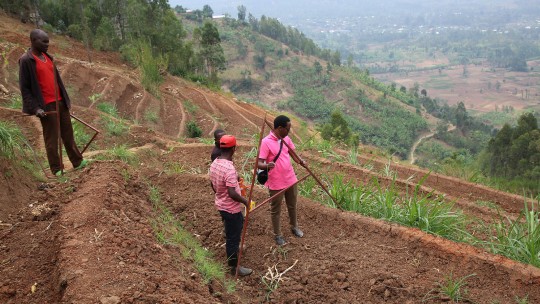The Principles for Locally Led Adaptation have been unveiled at the start of the Climate Adaptation Summit to ensure climate adaptation is led by local people.
The Principles provide a guide on how to change the standard ‘business as usual’ top-down approach for how climate finance is currently directed, to a ‘business unusual’ model, where decisions are made at the lowest appropriate level on where and how this money and support are used.
Signatories commit to eight principles: devolve decision making to the lowest appropriate level; address structural inequalities; provide more patient, predictable and accessible funding so it is long-term, flexible and does not come with numerous strings attached; invest in local capabilities to leave an institutional legacy; build a robust understanding of climate change impacts, risk and uncertainty; provide flexible programming and learning; ensure meaningful transparency and accountability; and enable collaborative action and investment.
The Principles are being supported by more than 35 governments; including the UK and Irish governments; the UN Development Programme, investment funds, local and international NGOs, Zurich Investment Group, BRAC and Slum Dwellers International.
The International Institute for Environment and Development (IIED), World Resources Institute (WRI), and International Centre for Climate Change and Development (ICCCAD) facilitated the Principles’ development with over 50 other organisations under the Global Commission for Adaptation, steered by commissioners Sheela Patel of Slum Dwellers International and BRAC executive director Dr Muhammad Musa.
Even though households and communities in vulnerable countries can often spend significant money on adaptation, according to IIED’s research on household spending on climate impacts in Bangladesh, and have critical insights into how to build resilience into the future appropriate to their context, IIED found that less than 10% of global climate finance is dedicated to local action. It is even rarer for investment reaching the local level to be locally led.
Andrew Norton, director of the IIED, said: “For too long vital climate finance and support have been directed by distant, uninvolved institutions led by their priorities rather than being determined by the people on the frontline who know most what is needed. These Principles are an opportunity to change that, particularly in this super year of climate and biodiversity action, and put the most affected and informed voices front and centre of climate action.”
Latest News
-
Airport hands local charities and groups £100,000 over last year
-
Private health provider awards £10,000 to arthritis research team
-
Building Society hands out £1m to tackle inequality
-
Premier League and Comic Relief partnership aims to improve children’s mental health
-
Russell Hobbs launches food poverty campaign in schools
-
Tottenham Hotspur and charities launch film to tackle mental health stigma
© 2019 Perspective Publishing Privacy & Cookies







Recent Stories